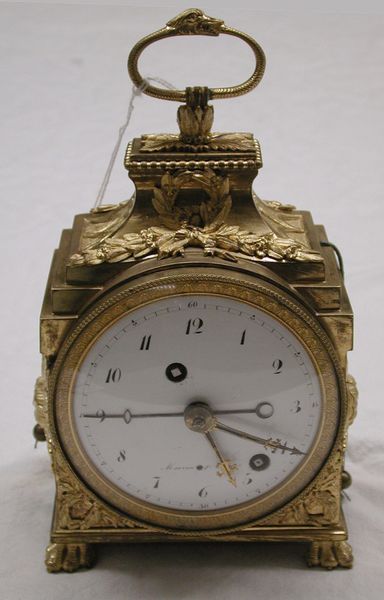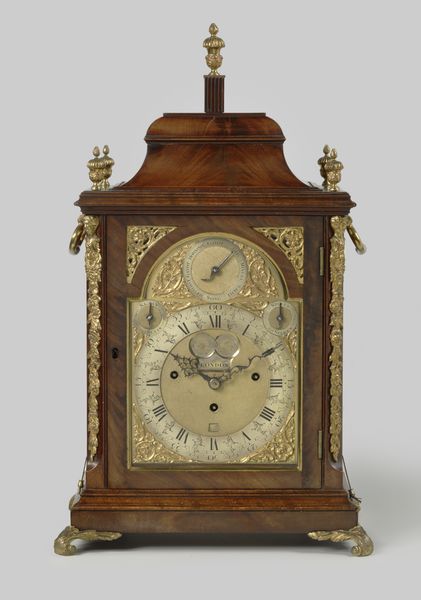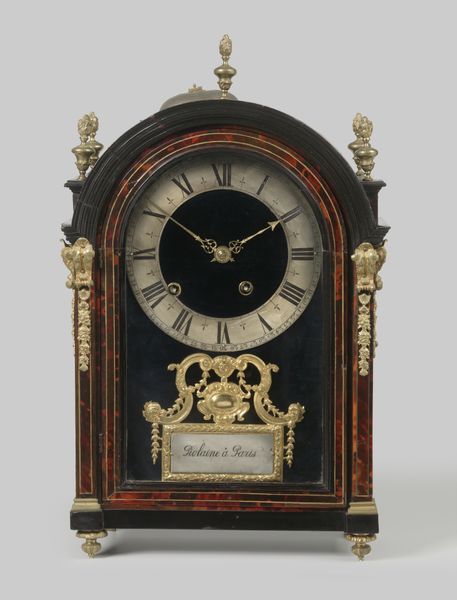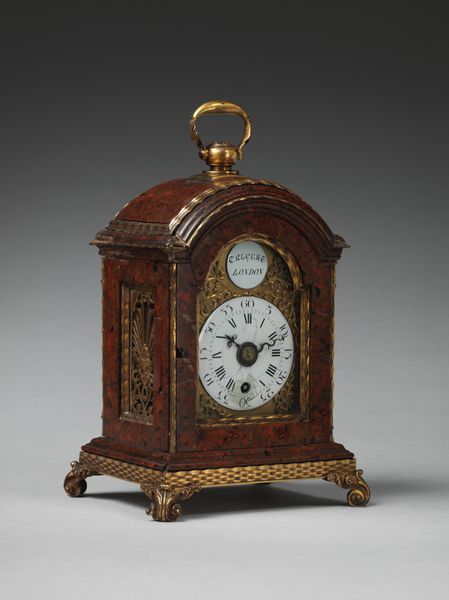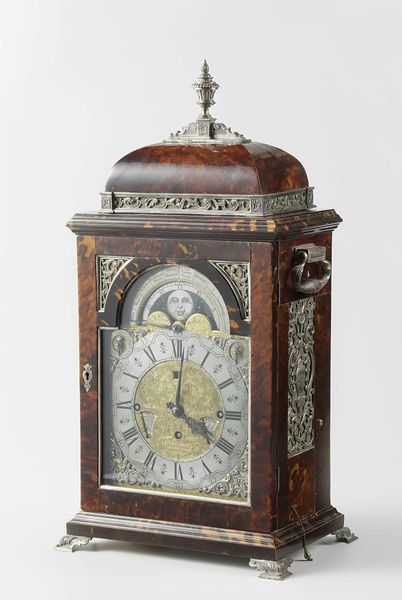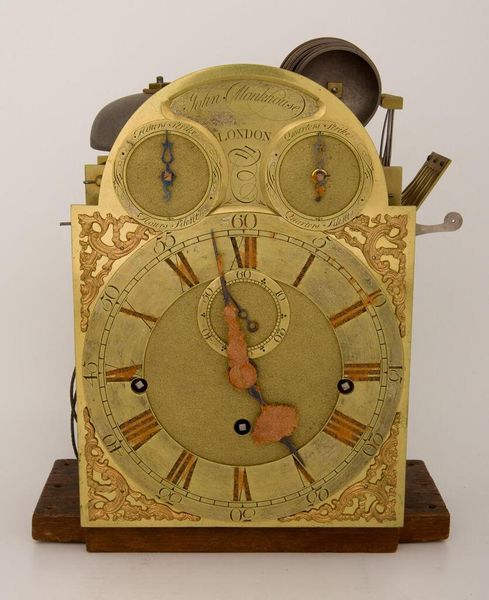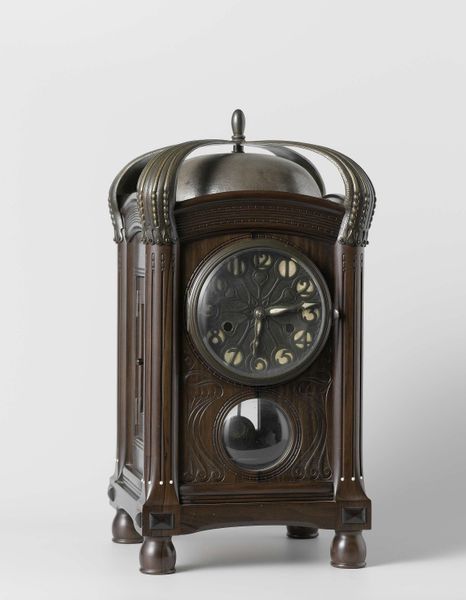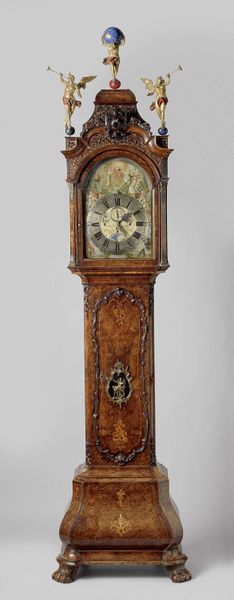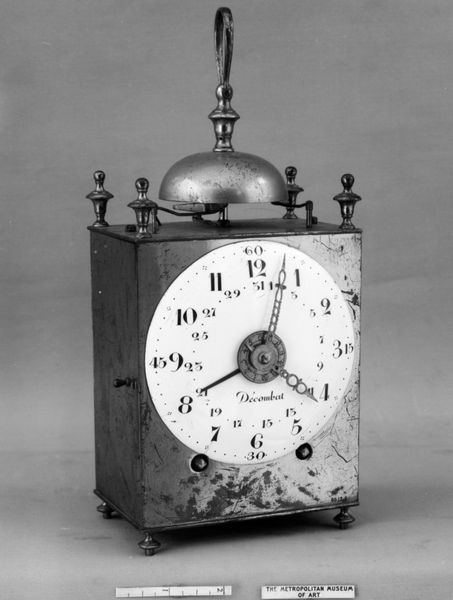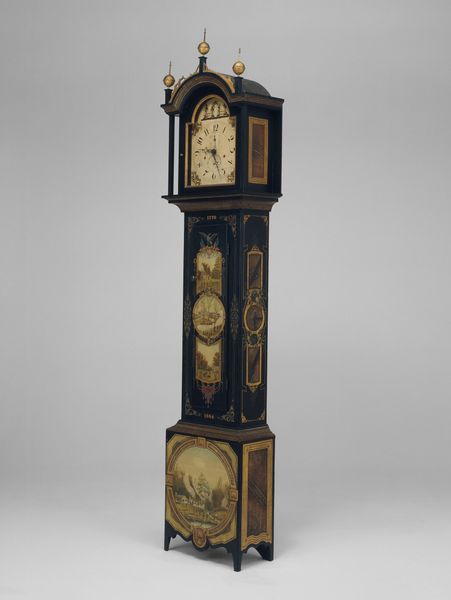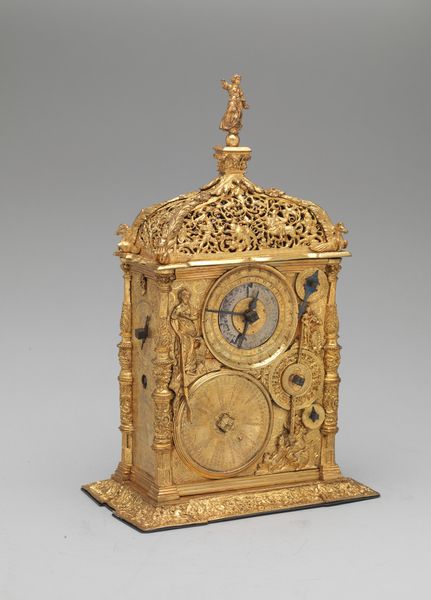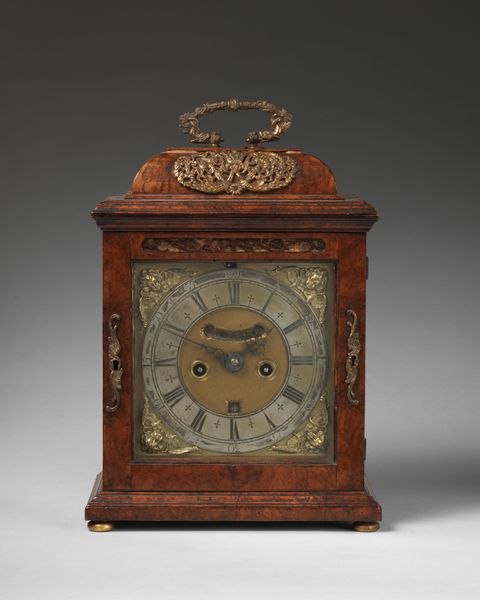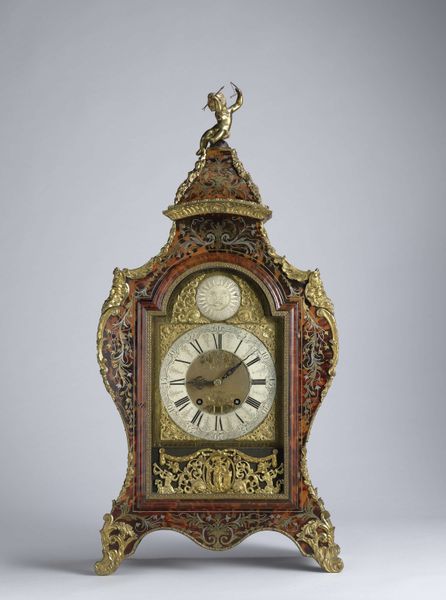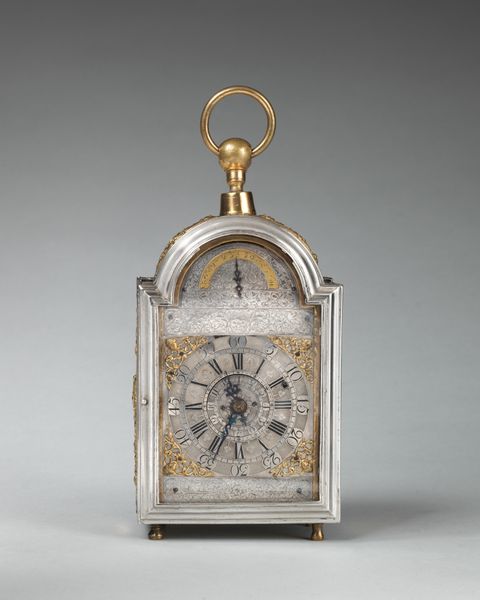
metal, sculpture
#
baroque
#
metal
#
sculpture
#
sculpture
#
decorative-art
Dimensions: Overall: 8 × 4 3/4 × 3 1/2 in. (20.3 × 12.1 × 8.9 cm)
Copyright: Public Domain
This clock was made in France, sometime in the 18th century, by Le Febvre, Fils. It is made of gilt bronze and enamel. This clock reminds us that time itself is a social construct. While we often think of time as a natural phenomenon, the way we measure and perceive it is shaped by cultural and institutional forces. In 18th-century France, timekeeping was closely linked to the rise of capitalism and the need for standardized schedules. The clock became a symbol of order and control, reflecting the values of the Enlightenment. The decoration suggests the wealth and status of its original owner and the location suggests the importance of clock-making in the French economy. It is inscribed "Le Febvre, Fils, a Fontainebleau" which tells us where the clock-maker's workshop was located. By studying objects like this clock, we can gain insight into the social, economic, and cultural contexts in which they were produced. Historical records, such as trade documents, guild records, and personal correspondence, can help us understand the role of time in shaping society. Ultimately, this clock invites us to reflect on the power of institutions to shape our lives and perceptions.
Comments
No comments
Be the first to comment and join the conversation on the ultimate creative platform.
